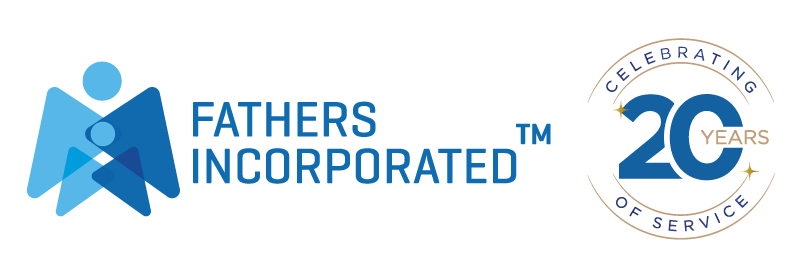Children whose fathers are stable and involved are better off on almost every cognitive, social, and emotional measure developed by researchers.
Encouraging Fathers
Fathers Incorporated anticipates the campaign period to be three-five years. During that time, Drive to Five will focus primarily on dads by providing information, training, and engaging them in dialogue about the six priority areas. The direct impact on fathers will encourage them to:
- Have an understanding of how to remain actively engaged in their child’s live regardless of their living situation;
- Be educated about issues of child development, literacy- grammar, communications, parenting/co-parenting, finances, health, and equity; and
- Become aware and establish tools to address systemic barriers and obstacles to personal growth.
Core Audience
Trainings
There are several components of training that Fathers Incorporated provides in support of the advancement of Drive To Five.
- 6 module training for fathers with children birth to 5.
- 3 module training for expecting/new fathers to 1 years old.
- One day training for service providers to explore the nuances of working with fathers (What About Dad?)
- Specialized topical trainings (Domestic Violence Prevention; Successful Co-parenting; “Standing in the Gap: Single Mothers Raising Boys”, etc.)
Drive to Five Impact
Father involvement is related to positive cognitive, developmental, and socio-behavioral child outcomes, such as improved weight gain in preterm infants, improved breastfeeding rates, higher receptive language skills, and higher academic achievement. Here are some key impacts our campaign will have in short, mid and long run:- Influence the emotional experience with fatherhood and their 0-5 children
- Increase media hits to broaden and deepen messages
- Influence social service capacity to serve the needs of fathers in the 0-5 years
- Educate new and to-be fathers to serve as responsible parents
- Influence the logical and emotional thought processes to which society and individuals process responsible fatherhood
- Increase relationships with media influencers of societal family culture
- Impact human services by encouraging awareness of fatherhood/masculine issues
- Impact the behavior and intimate parental relationships between fathers, mothers and their children
- Impact the investment of government and business resources into supporting parenting education and human service capacity building
- Integrate responsible fatherhood and manhood principles in early child development

